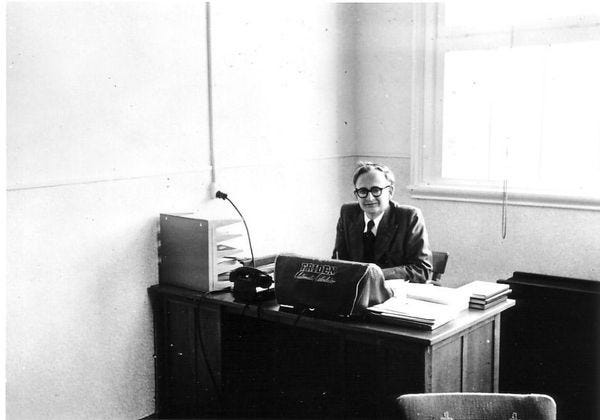Adriaan van Wijngaarden: ALGOL 68 and Pioneer of Formal Language Theory
The creator of ALGOL 68, Adriaan van Wijngaarden, was a Dutch computer scientist and a significant contributor to the field of programming languages and formal methods. Born on November 2, 1916, in Rotterdam, the Netherlands, van Wijngaarden's work is noted for its foundational impact on the development of computer science, particularly in designing ALGOL 68, a programming language aimed at providing a more expressive and powerful syntax and structure than its predecessor, ALGOL 60. Van Wijngaarden's contributions are closely tied to his rigorous approach to language definition and programming theory, shaping the direction of programming language research and implementation.
Early Life and Education
Adriaan van Wijngaarden was drawn to mathematics and sciences from an early age, a path that would lead him to earn a degree in mechanical engineering from the Delft University of Technology. His studies were interrupted by World War II, during which he was imprisoned by German forces. After the war, van Wijngaarden returned to his academic pursuits and transitioned into the burgeoning field of computer science, becoming a leading figure in European computer science circles in the post-war years.
Career and Contributions to Computing
In the 1950s, van Wijngaarden joined the Mathematical Centre (later known as Centrum Wiskunde & Informatica, or CWI) in Amsterdam, where he would work for much of his career. His early work involved pioneering efforts in computational mathematics, which eventually led him to programming languages and compiler theory.
Van Wijngaarden was an instrumental figure in the design and promotion of the ALGOL programming language family, which became a cornerstone for structured programming and language theory in the 1960s. After ALGOL 60 was established, van Wijngaarden led the development of its successor, ALGOL 68. His goal was to create a language that not only served scientific computing but was also more powerful and flexible in handling complex data structures, control flows, and syntax.
The Design of ALGOL 68
ALGOL 68 was designed to be a more ambitious and sophisticated language than its predecessors. Van Wijngaarden introduced a highly structured syntax and formal grammar rules that could express recursive data types and modular code structures in ways that were innovative at the time. These innovations aimed to address criticisms of ALGOL 60's limitations and were intended to make the language suitable for a broader range of applications.
To formally define ALGOL 68, van Wijngaarden developed what became known as the "van Wijngaarden grammar" or "two-level grammar." This formalism allowed more expressive and flexible rules than previous methods, enabling the representation of complex language constructs that were both highly structured and powerful. This two-level grammar became an important advancement in programming language theory, influencing later language definition techniques, including Backus-Naur Form (BNF) and Extended BNF.
Despite its technical achievements, ALGOL 68 was controversial in its complexity. While some praised the language's expressive power, others criticized it as overly complicated and difficult to implement efficiently. This divide ultimately limited ALGOL 68's adoption, but its design concepts and formal approaches had lasting impacts on language theory and influenced many subsequent programming languages, such as Pascal, Ada, and even C.
Legacy and Influence
Though ALGOL 68 itself was not widely adopted, van Wijngaarden's work on formal methods and language definition contributed substantially to the foundation of programming language theory. His approach to rigorous formal specification influenced generations of computer scientists and played a role in advancing structured programming concepts, which became essential to the development of reliable, maintainable code.
In addition to his technical contributions, van Wijngaarden was known for his dedication to education and mentorship. He worked closely with young researchers, helping to shape the academic computer science community in Europe. He was also involved in the founding of IFIP (International Federation for Information Processing), helping to establish global standards for computer science research and education.
Later Life and Recognition
Van Wijngaarden continued to contribute to the field of computer science until his retirement, remaining active in research and development at the CWI. Although his career was marked by controversy and challenges, particularly surrounding ALGOL 68's complexity and the resistance it faced from certain sectors, his influence on programming language theory and formal methods is widely acknowledged.
Adriaan van Wijngaarden passed away on February 7, 1987, in Amstelveen, the Netherlands. His legacy is preserved not only through his contributions to ALGOL 68 but also through his lasting impact on formal language theory and his influence on programming methodology. Today, van Wijngaarden is regarded as one of the pioneers of programming language theory, and his work continues to inspire computer scientists and linguists interested in the formal specification and analysis of languages.




